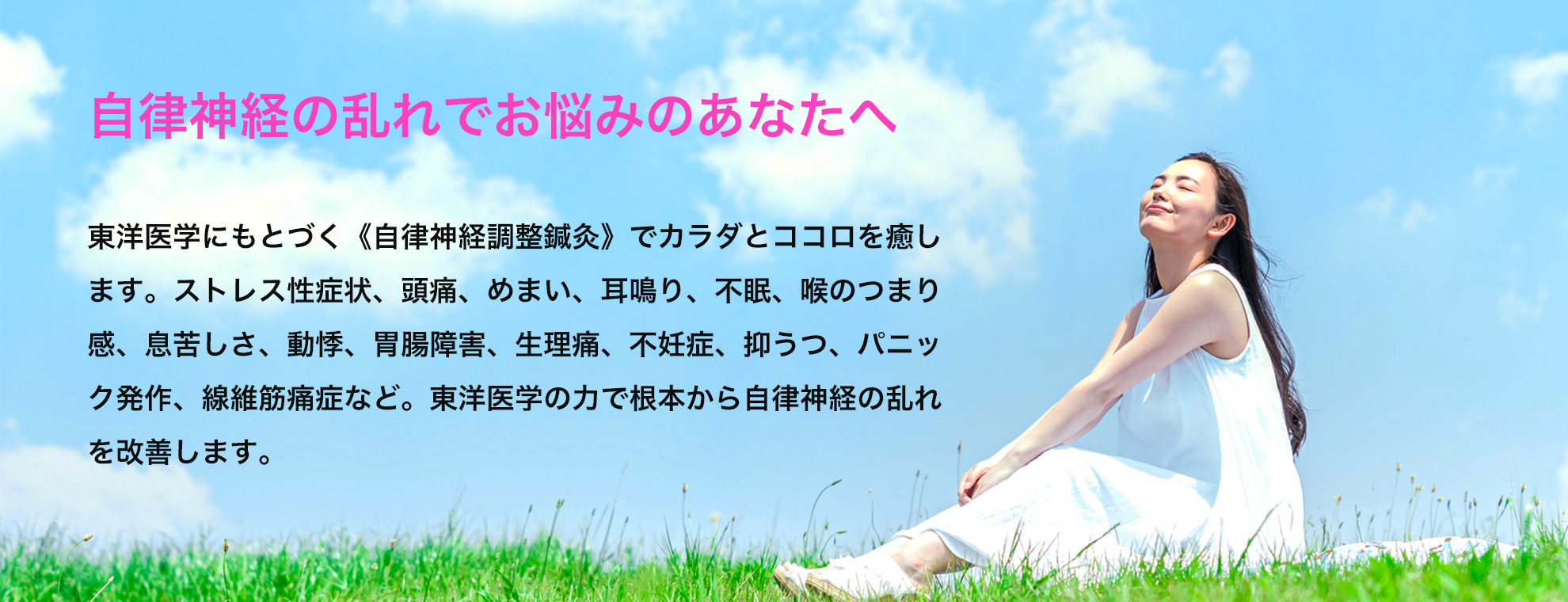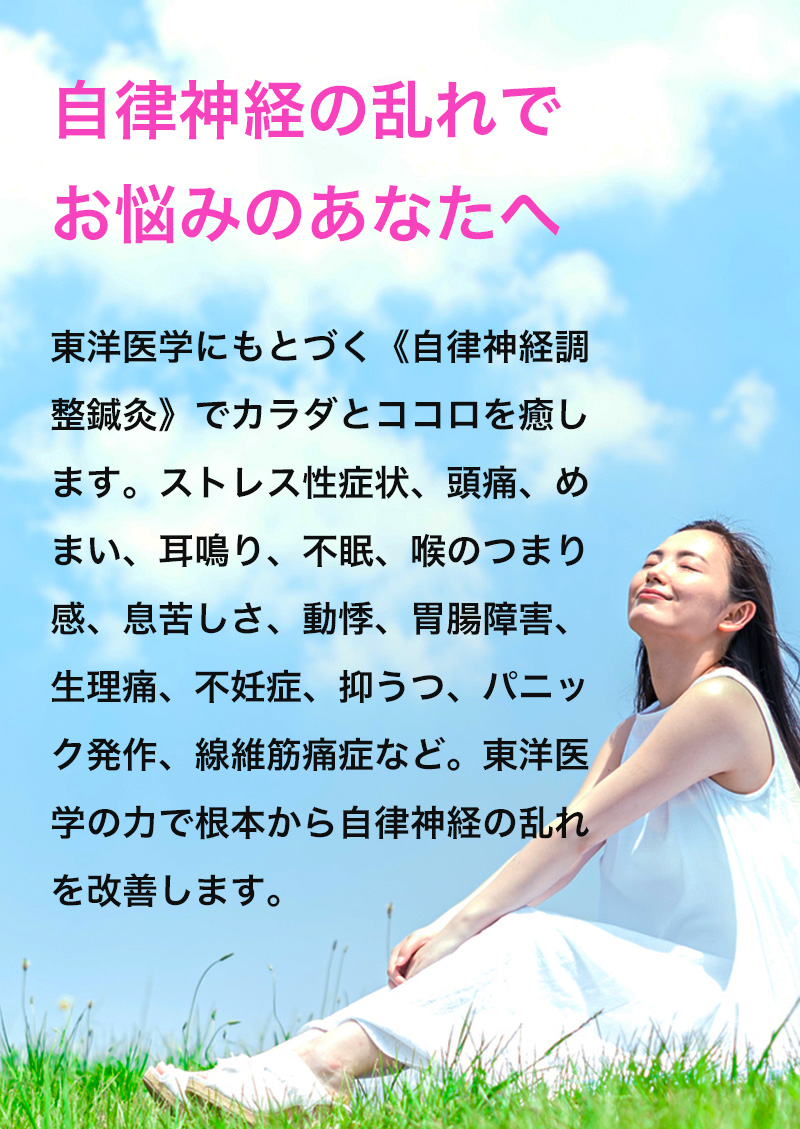稲森 英彦 Hidehiko INAMORI
プラナ松戸治療室代表
【略歴】
東京都生まれ。慶應義塾大学文学部卒。
1998年に鍼灸師資格を取得。心療内科クリニックに勤務し、東洋診療部門を立ち上げる。
2005年に自律神経系・心療内科系鍼灸院のプラナ松戸治療室を開設。
現在(2025年)臨床歴27年。



自律神経の乱れによる息苦しさ、めまい、喉のつまり感、動悸、吐き気、不眠、頭痛、首肩腰痛、慢性疲労、不妊、目の不調などに。全身のバランスを整えて自律神経の乱れを癒します。
詳細はコチラ
頭皮の特定の機能局在領域(脳の各機能に対応する部位)やツボに細い鍼を優しく刺激することで、脳機能の活性化、神経伝達の改善、自律神経のバランス調整、精神的な安定を目指す施術です。
詳細はコチラ
息苦しさ、不眠、動悸、うつ症状、痛み、めまいなど、幅広い症状に鍼灸で改善をもたらした症例集です。自律神経の調整から、体調不良まで、心身の調和を取り戻す症例をご紹介します。
詳細はコチラご予約、ご相談、ご質問などはこちらのフォームをご利用下さい。
第3話 意識が世界に触れるとき――人間と宇宙の再定義
この仮説をさらに押し進めると、
避けて通れない問いに行き着く。
意識とは何か。
遠隔外気功が成立する世界では、
意識は脳の副産物ではない。
それは、
である。
意識は気の場に触れ、
その配置や流れを変え、
結果として物質的な変化として現れる。
このとき、人間の定義も変わる。
個体とは、完全に独立した存在ではなく、関係性が一時的に焦点化した姿にすぎない。
この世界観における宇宙は、
それは、
意味や意図に感応する構造を持った宇宙である。
科学は、物質層の安定した法則を扱う。だが、意識や意味は、その射程の外に置かれてきた。
それは「存在しない」からではなく、
方法論が届いていないからかもしれない。
次回は第4話(最終回) 健康に生きる条件――この仮説が私たちに示すもの
寒さが厳しくなってきましたが、2月4日は立春。暦の上では春の始まりです。
秋から冬にかけて、私たちの身体の「気」は収縮し、骨盤などが引き締まっています。しかし、立春を迎えると気の流れは発散する方向へと変わり、少しずつ身体がゆるみ始めます。
この変化に伴い、秋冬にため込んだ不要なものを排泄しようとするため、春先に下痢をしやすくなることがあります。これは、自然なデトックスの一環です。
東洋医学では、春は「肝」が活発になる季節とされています。肝は全身の気の流れを促し、排泄機能を高める重要な役割を持っています。
春の排泄が順調に進むと、身体は弾力を取り戻し、エネルギッシュに新緑の季節を楽しめるようになります。
しかし、この時期に食べ過ぎて肝に負担をかけると、デトックスが滞り、不要なものが体内に残ってしまいます。その結果、身体が重だるい状態のまま1年を過ごすことにもなりかねません。
そのため、立春から春分にかけては、食べ過ぎに注意しましょう。特に、砂糖、アルコール、高脂肪、塩分過多、加工食品などは控えるのが理想的です。
春のデトックスをスムーズに行い、爽やかに新しい季節を迎えましょう。
The cold is becoming more severe, but February 4th marks Risshun, the beginning of spring according to the traditional calendar.
From autumn to winter, the “Qi” in our bodies contracts, causing areas such as the pelvis to tighten. However, when Risshun arrives, the flow of Qi begins to expand, and the body gradually starts to loosen up.
As part of this transition, the body naturally tries to eliminate unnecessary substances accumulated during autumn and winter. This is why people may experience diarrhea in early spring—it is a natural detoxification process.
In Traditional Chinese Medicine (TCM), spring is associated with the Liver, which plays a crucial role in regulating the flow of Qi throughout the body and enhancing the body’s detoxification functions.
When detoxification progresses smoothly in spring, the body regains its flexibility, allowing you to feel energized and enjoy the season of fresh greenery.
However, overloading the Liver with excessive food intake during this period can hinder detoxification, leaving unwanted substances in the body. As a result, you may feel sluggish and fatigued throughout the year.
Therefore, from Risshun to the Spring Equinox, it is important to be mindful of overeating. Ideally, you should limit the intake of sugar, alcohol, high-fat foods, excessive salt, and processed foods.
Let’s embrace the spring detox smoothly and welcome the new season with a refreshed and vibrant body!
第2話 「気」とは何か――病はどこで生まれるのか
遠隔外気功の仮説を成立させる鍵となるのが、「気」という概念である。
気はしばしば、
「見えないエネルギー」
「非科学的な言葉」
として扱われる。
しかし東洋医学において、気は単なる比喩ではない。
それは、身体・感情・環境・関係性を同時に扱うための、実践的な概念だった。
気は量ではなく、状態である。
こうした言葉は、エネルギー量の増減では説明しきれない。
むしろ気とは、
身体と世界のあいだに成立する「関係の場」と考えたほうが近い。
重要なのは、気が意識に応答するという点だ。
注意の向け方、イメージ、意味づけによって、気の流れは変わる。
この視点から見ると、病は次のように捉え直される。
遠隔外気功とは、壊れた部品を修理する行為ではない。
乱れた秩序に対して、整う方向性を提示する行為である。
だからこそ、治療は操作ではなく、共鳴として起こる。
同じ刺激を与えても、反応が人によって異なるのは、そのためだ。
次回は、第3話 意識が世界に触れるとき――人間と宇宙の再定義